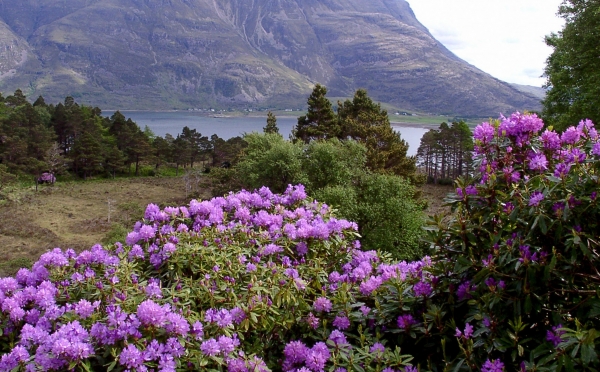Charisma can launch professional success and improve leadership skills. It can make a difference in a debate, make people become the center of attention and even be a factor in winning an election. However, humans do not have the monopoly on this inherent magnetism for triumph studied in so many coaching textbooks. It can also turn into an ally for certain living things in order to make their homes in a new ecosystem. Charismatic species have an easier time.
At least this is the main conclusion of an international study performed by the Biology Centre of the Czech Academy of Sciences in the Czech Republic and the Leibniz-Institute of Freshwater Ecology and Inland Fisheries, and on which University of Cordoba researcher Pablo González also collaborated. The study assessed the influence of charisma on the management of invasive species and concluded that this capacity that some living things have to fascinate can hinder controlling them and condition how they spread. “Charismatic species such as decorative plants, aquarium fish and exotic pets are more likely to be deliberately brought in by humans”, explains Pablo González.
According to the literature, as this concept has been studied for years, charisma in exotic species is defined as “attractiveness that affects perceptions and produces positive responses from human beings”. Research has shown that body size, emitting certain sounds or nice smells, distinctive coloring and furriness are some of the main features that contribute to this attraction. One example is raccoons, an exotic species in Japan that has spread throughout practically the entire country. Their facial features and funny behavior, such as dipping food in water before eating it, have made them one of Japan’s most popular pets.
Though to the human eye a lizard does not provoke the same likeability as a panda bear, invasive species, regardless of their attractiveness, “can cause serious problems in their new habitats when competing for food or being disease carriers”, explains Professor Jonathan Jeschke, one of the study’s authors.
The study, in which Spanish researcher Ana Novoa also participated, analyzed several cases when charisma also influenced the language used by the media. It is no coincidence that some plant species are called “weeds”, whereas other decorative plants with long flowering periods have a better reputation. The gray squirrel in Italy, an invasive species native to North America, is a prime example. A campaign defending animal rights that portrayed these squirrels as likeable cartoon characters played a part in the failure of removal programs. “The fact that a problematic species is seen as being adorable can make managing the situation difficult when the public objects”, points out Ivan Jaric, lead author of the paper.
According to the study, the social perception of these species also depends on a cultural component. Echium plantagomieum, a European weed introduced in Australia, is known in some places as “Paterson’s curse”, while in others its nickname is “Salvation Jane”. This poisonous plant kills everything that grows around it, but on the other hand it provides large areas of purple flowers that are pleasant to look at.
Effects of charisma on research programs
Scientific research programs and funding programs can also fall for this. According to the study, research into charismatic invasive species usually receives more funding and greater interest from the research community. “This can create gaps in scientific knowledge and make managing invasive species with greater social interest a priority but they are not necessarily the ones that actually make the greatest impact”, highlights researcher Ana Novoa.
To do so, the team in charge of the study reminds us of the importance of awareness of charisma’s influence over the treatment that these living things receive. Some species can cause severe problems when settling into an ecosystem that is not used to them, no matter how adorable they are. As the saying goes, all that glitters is not gold. It is what is on the inside that counts.
References:
Ivan Jarić Franck Courchamp Ricardo A Correia Sarah L Crowley Franz Essl Anke Fischer Pablo González‐Moreno Gregor Kalinkat Xavier Lambin Bernd Lenzner Yves Meinard Aileen Mill Camille Musseau Ana Novoa Jan Pergl Petr Pyšek Klára Pyšková Peter Robertson Menja von Schmalensee Ross T Shackleton Robert A Stefansson Kateřina Štajerová Diogo Veríssimo Jonathan M Jeschke. The role of species charisma in biological invasions. Frontiers in Ecology and the Environment. 06 April 2020 https://doi.org/10.1002/fee.2195


